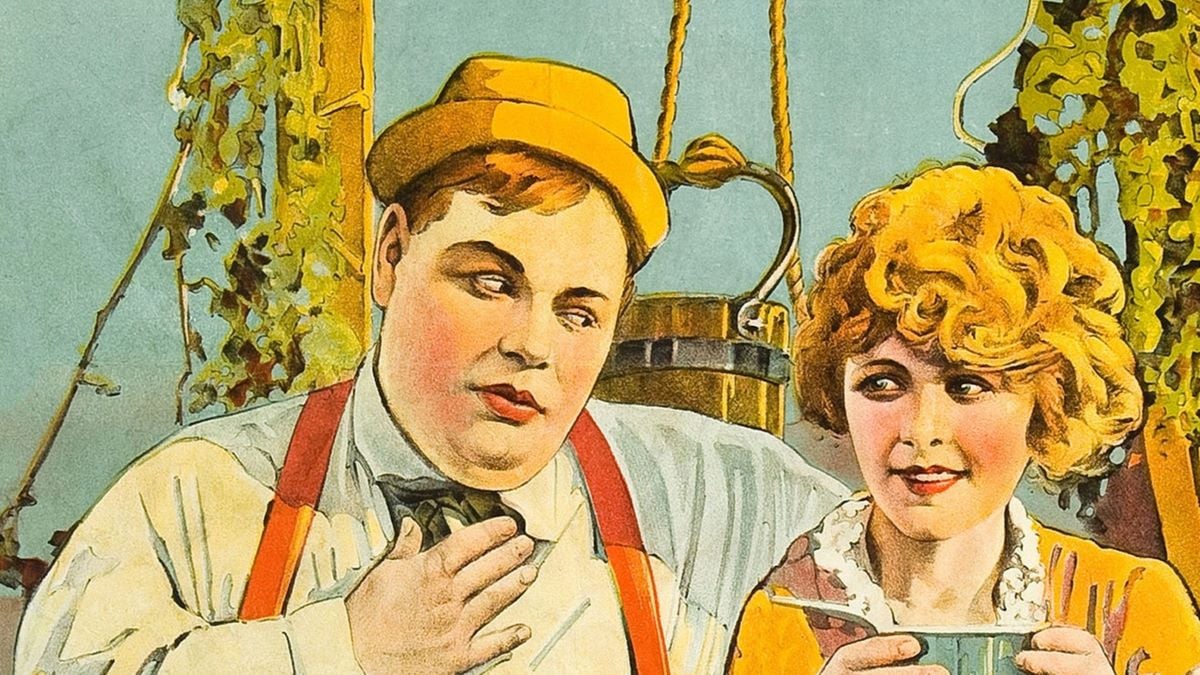Roscoe Conkling Arbuckle, better known as Fatty Arbuckle, was a prominent figure in early 20th-century silent films, celebrated for his comedic talent and expressive acting. His career began in theaters and vaudeville shows, and by his mid-20s, he had signed a lucrative deal with Keystone Film Company, headed by the renowned producer and director, Mack Sennett, also known as the “King of Comedy.”
Arbuckle quickly rose to fame for his versatility and natural knack for slapstick humor, which endeared him to audiences. Paramount Pictures recognized his star power, offering him a groundbreaking three-year contract worth $1 million annually (equivalent to about $17.5 million today). Biographer Stuart Oderman hailed Arbuckle as a trailblazer who discovered talents like Buster Keaton and mentored Charlie Chaplin, highlighting his impeccable comic timing and lasting impact on the industry.
However, Arbuckle’s career took a devastating turn when he became embroiled in what is considered Hollywood’s first major scandal.
The Labor Day Party Incident
In September 1921, amidst his thriving career, Arbuckle attended a party at San Francisco’s St. Francis Hotel organized by his friend Fred Fischbach. The event was marked by revelry and alcohol, typical of the Prohibition era. Among the attendees was Virginia Rappe, a model and actress, accompanied by her friends Maude Delmont and Alfred Semnacher.
The details of what transpired that evening remain contentious and clouded by conflicting accounts. Witnesses reported hearing Rappe in distress from Arbuckle’s room (number 1219), prompting medical attention. Despite efforts to aid her, Rappe’s condition worsened, leading to her death days later from peritonitis, caused by a ruptured bladder.
Allegations and Trials
The aftermath saw Arbuckle accused of first-degree murder, later reduced to manslaughter, based on allegations that he sexually assaulted Rappe, causing her fatal injuries. Delmont asserted that she witnessed Arbuckle’s assault and heard Rappe’s screams of pain, alleging a brutal attack.
Arbuckle maintained his innocence, claiming he found Rappe intoxicated in his room, attempted to assist her, and then returned to the party before realizing her worsening condition. Despite conflicting testimonies and a lack of conclusive evidence linking him to the assault, Arbuckle faced relentless media scrutiny and public condemnation.
Arbuckle endured three grueling trials. The first two resulted in mistrials due to jury deadlock, while the third trial provided a platform for new evidence and testimonies that cast doubt on Delmont’s credibility and the circumstances surrounding Rappe’s death.
Ultimately, after a brief deliberation, the jury acquitted Arbuckle, delivering a resounding verdict of not guilty and expressing sympathy for his ordeal. Despite this exoneration, the damage to Arbuckle’s career and personal life was irreparable. Although his film screenings were eventually reinstated, he struggled to reclaim his former status in Hollywood.
In the aftermath of the scandal, Arbuckle largely withdrew from acting, instead working behind the scenes under the pseudonym William Goodrich. He made a brief return to acting in the early 1930s with Warner Bros., finding success but never fully restoring his once-prominent career.
Tragically, Arbuckle’s life was cut short by a heart attack in 1933, marking the end of a tumultuous journey that forever altered his legacy in the annals of Hollywood history.


